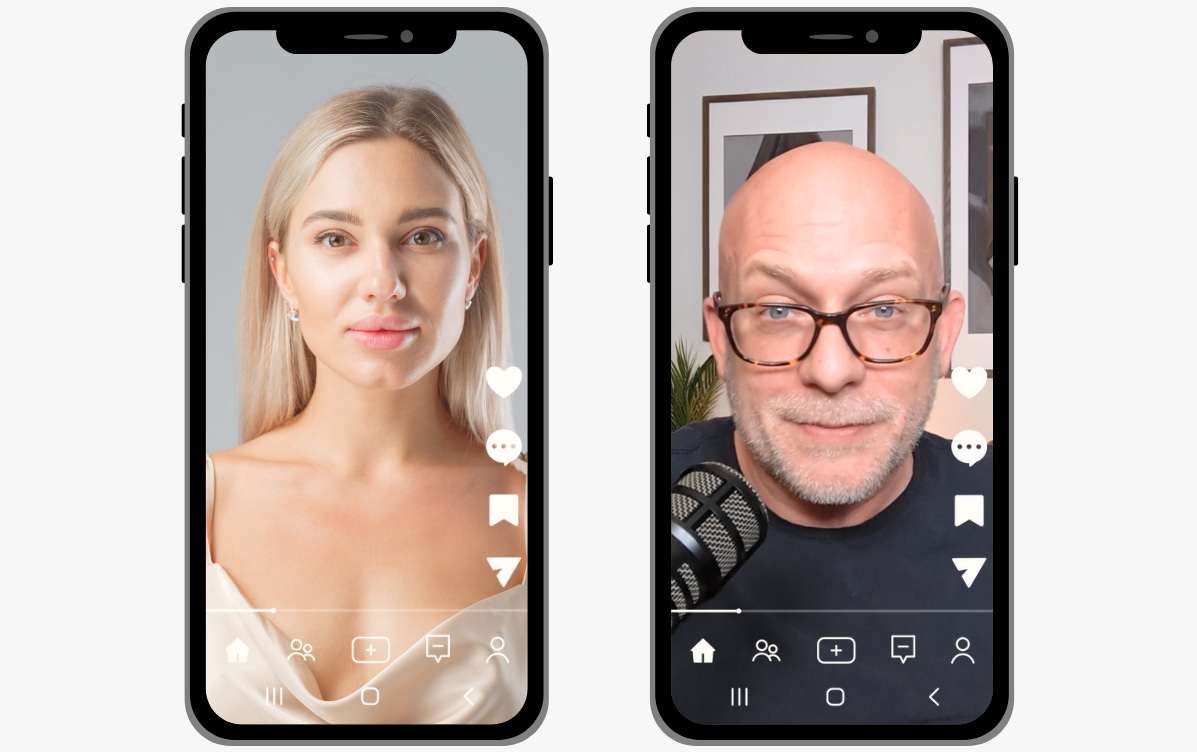Stop Letting the Algorithm Train You
Social media algorithms punish uniqueness from creative founders. Here’s why you should ignore them and stay weird.
The Weekly Build is my free advice series where I answer real questions and challenges from creatives building their own business. Every Friday, in your inbox.
Want to go deeper? That’s what The Workshop is for. You can sign up for both here:
Warning: This week’s advice might sting a little.
Especially if you’ve spent tons of energy building a social media presence to boost your creative business.
Today’s challenge comes from an artist who’s considering posting their work for the first time on TikTok.
“I need to build a social media presence but I’m afraid that, once I start posting, I’ll just look like everyone else.”
Yeah. You might. That happens to artists all the time and here’s why:
Social media punishes uniqueness and rewards sameness.
I’ll dig into why that happens and what creative founders should do about it. But let’s start with some hope that I’ll keep repeating until repetition has annoyed away my last subscriber.
You’re not in the content creation business. You’re in the art business.
If you use that as a filter for decisions on social media, you'll be alright.
The Big Power Shift for Creatives
Social media isn’t completely terrible. Your ability to connect with customers, without relying on gatekeepers, means you have more power as a creative than any generation before you. I love the fall of control structures in creative industries. Check out my new trailer for more on that.
We’re seeing this play out in the demise of art galleries all over the world. I want to be careful not to celebrate that too much—many well-intentioned gallery owners and employees find their livelihoods at risk. But I’m happy to see power shift toward artists where it belongs.
It’s more than just social media that’s enabled this. Big tech helps you everywhere in your business. The technologies behind digital storefronts, payments, on-demand printing, packing and shipping, customer management, and countless others have too.
Whether you like it or not, you’re actually building a tech business right now. But you probably didn’t study technology or business in school. That’s okay. Big tech has democratized education too. Substack, TikTok, and YouTube bring educators like me to creative founders like you for little or no cost.
And who are the most successful educators on each of these platforms? People teaching you how to build big followings on them. Content influencers sell the allure of money and independence from full time content creation on whatever platform they represent. They teach you how to create content that satisfies the algorithm so you get likes, shares, and followers.
And they lead creative founders astray in the process.
We’re Not Training the Algorithm, It’s Training Us
Have you ever heard a content influencer say, “train the algorithm?” Well, that’s not how algorithms work. An algorithm is a pretty static thing. That’s why we see people freak out when algorithms periodically change. They’re designed to have predictable inputs and outputs.
Let’s try a little experiment. Which of these two videos would you predict to perform better on TikTok?
The answer is unfortunate (for me) but obvious. She gets more watch time, more likes, and more comments. The algorithm knows that and pushes her post to a broader audience. Not because the goal is to promote her over me. The algorithm knows she will keep more viewers on the platform longer so they see more ads and buy more stuff.
She builds a big following in service to the algorithm and the social media company behind it.
When content influencers give you advice to “train the algorithm,” they’re actually teaching you how to conform to it, to be more like her than me. They suggest changes in your content so it fits a predictable formula. So the algorithm rewards you with broader reach, more engagement, and more followers. And they give the same advice to everyone.
The result? Content convergence. The most successful content creators show, say, and do a lot of the same things. Same talking points, same trending audio, same backgrounds, same lighting, same dances, same vibes. Unfortunately, this includes some of the most successful artists on social media too.
Deviate from the algorithm’s formula and you'll never find a large audience.
But What About Going Viral?
Okay you might. I covered this one last week.
If you’re unpredictably blessed with a viral moment, that doesn’t guarantee success for what matters: your art business. Followers aren’t necessarily buyers. And when virality hands you a large following, keeping it is a full time job.
What The Hell Should I DO Then?
You’re not in the social media business or the content creation business. You’re in the art business, the music business, the design business, the animation business, the writing business. Whatever creative business you’re in.
I’m not saying you should walk away from social media. Just rethink it. Stop serving social media and start thinking about how it serves you.
Social media isn’t where you build your following. Serving customers is. A following of delighted customers is exponentially more valuable than a passive social media following.
Your social media profile is just one place to facilitate that. A place to showcase your brand and give people a way to contact you. That’s it. It doesn’t matter if they like, share, or comment on anything. Your goal is to entice them to eventually buy something from you.
This requires boldness. It requires you to create and post content that reflects you, your brand, and your work. Even when it bombs according to what we in the marketing world appropriately call “vanity metrics.”
This Week
So be bold this week. Create and post that weird content that doesn’t serve the algorithm. Celebrate its lack of reach—because it signals your uniqueness.
Then keep doing it, over and over, until your profile reflects the unique artist who you are.
Here’s a stack of buttons. If you feel moved to support me, please do!





Content creation has been my biggest struggle because of the fact that to succeed you almost have to disingenuous. This is extremely helpful insight in recognizing that the audience that I want to have wants me to be as authentic and unique as possible because that’s what they value most! Thank you!